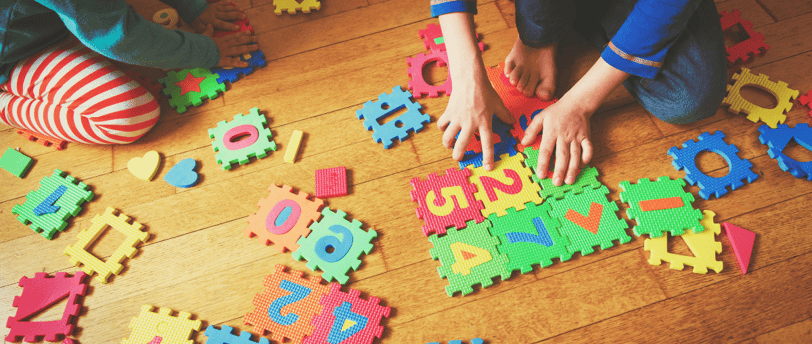How Do Children Learn Through Play?
BUILD CONFIDENCECRITICAL THINKING SKILLSEMOTIONAL INTELLIGENCESTEM LEARNING
Valeria Astorga
6/1/2024


Play is an integral part of childhood and is a natural and intuitive way for children to learn and develop. Through play, children explore the world, make sense of their experiences, and acquire essential skills. In this blog post, we will delve into the fascinating ways in which children learn through play and understand its crucial role in their growth and development.
1. Cognitive Development
Play provides numerous opportunities for children to engage in problem-solving, decision-making, and critical thinking. Whether building with blocks, solving puzzles, or engaging in pretend play, children are constantly exercising their cognitive abilities. Play helps them develop skills such as planning, sequencing, logical reasoning, and spatial awareness. As they encounter challenges and experiment with different approaches, children learn to think flexibly and adapt their strategies, fostering cognitive flexibility and creativity.
2. Social and Emotional Development
Meaningful playing offers a rich environment for children to develop social and emotional skills. Through imaginative play, children engage in role-playing, taking on different roles and perspectives, which enhances empathy and understanding of others. Play also allows children to practice communication and negotiation skills as they interact with their peers. They learn to cooperate, share, take turns, and resolve conflicts, laying the foundation for healthy relationships and effective social interaction.
Additionally, play provides a safe space for children to express and regulate their emotions. They can explore various scenarios and experiment with different emotions, helping them understand and manage their feelings. This emotional intelligence cultivated through play carries over into their everyday lives, promoting self-awareness and empathy.
3. Physical Development
Playing and moving, such as running, jumping, climbing, and throwing, is crucial for children’s physical development. It helps them develop fine and gross motor skills, strength, coordination, and balance. Engaging in physical play strengthens their muscles and enhances their spatial awareness and hand-eye coordination. Whether riding a bike, playing tag, or engaging in organised sports, children build a strong foundation for a healthy lifestyle through play.
4. Language and Communication Skills
Play acts as a catalyst for language development and communication skills. As children engage in imaginative play, they create narratives, engage in dialogue, and use language to express their thoughts, ideas, and feelings. Playing allows them to practice and expand their vocabulary, sentence structure, and communication strategies. Whether engaging in make-believe scenarios or playing with puppets, children develop their language skills and enhance their ability to express themselves effectively.
5. Creativity and Imagination
Playing nurtures children’s creativity and imagination, allowing them to explore and create their worlds. Whether building structures with blocks, creating artwork or engaging in make-believe play, children tap into their creative imagination, invent new ideas, and express themselves creatively.
Conclusion
Playing is not merely a recreational activity for children but a powerful vehicle for learning and development. Children enhance their cognitive, social, emotional, physical, and language skills through play. It promotes creativity, problem-solving, cooperation, and resilience, equipping them with the necessary tools to navigate the world around them. As caregivers, educators, and society, it is crucial to recognise the value of play and create opportunities for children to engage in free, unstructured play. By doing so, we empower children to thrive, grow, and reach their full potential joyfully and meaningfully.


